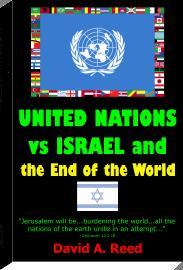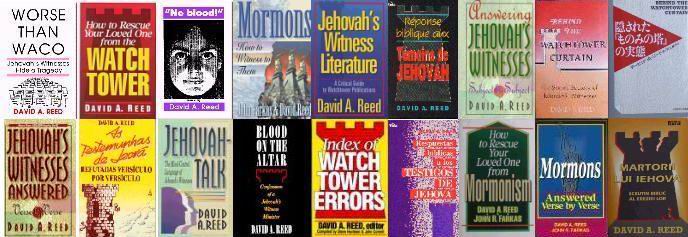I believe that God had all of these things written in the Bible so that we can have confidence that his Kingdom will triumph. The details are provided, not so that we would have advance knowledge of all that will take place, but rather that we would know that God knows and understands all the details ahead of time. So the prophecies are intended to inspire in us trust and confidence in God. Our role is not to argue among ourselves over the details, but rather to trust and obey.
Prophecy's purpose is
not to give us all the details in advance, but to show us
God knows all the details in advance. |
Much debate has taken place among Christians as to when we can expect to be "raptured." The "rapture" refers to believers being caught away to meet the Lord in the air at his second coming: "...the dead in Christ shall rise first; Then we which are alive and remain shall be caught up together with them in the clouds, to meet the Lord in the air." (1 Thess. 4:16:17 KJV)
| Our role is to trust and obey. |
Different views on this have held sway at different epochs in the history of the Christian church. Throughout much of the Christian era the viewpoint that prevailed was that the Church would remain on earth and would pass through the coming tribulation, only to be raptured at the triumphant conclusion. Today, however, the prevalent view is that believers will be caught away to join the Lord in heaven before the end times events get really rough here on earth. But there are several schools of thought on this matter, even now; they go by such names as "pre-tribulation" (abbreviated "pre-trib"), "post-tribulation" ("post-trib") and "mid-tribulation" ("mid-trib"), depending on whether the theory places the rapture of believers ahead of a period of worldwide trouble, at the end of that period, or in the middle of it.
According to the eschatology prevailing in evangelical churches today, the end times prophecies can be sorted out to reveal a scenario roughly like this: An individual anti-Christ will rise in the Middle East and will gain power in the area including Jerusalem. The temple of God will be rebuilt on the ancient Temple Mount. The anti-Christ will make some sort of covenant or agreement with the people of Israel. Jewish worship will be restored at the temple, including the sacrifice of animals as was the practice before the Temple's destruction at the hand of the Romans during the first century. All of the Jews worldwide will return to Israel, according to some of these interpretations. There will be a seven year period marking the anti-Christ's rule, and in the middle of those seven years he will break his covenant with Israel. There will be some sort of worldwide dictatorship inflicting tribulation on the whole planet.
Historically, the predominant teaching in the Christian Church has been post-tribulation. But the late twentieth century saw a swing toward pre-tribulation thinking in Christian preaching and writing. So, probably the most popular theory today is that there will be a sudden and unexpected rapture of believers, followed by a seven year tribulation period. There are then no Christians left on earth, since they have all been caught away to be with the Lord, and the unbelievers who are 'left behind' must struggle to deal with their disappearance and with the evil world rulership of an individual antichrist. According to this understanding, the predicted international attack on Jerusalem does not occur until the end of the seven years.
Regardless of whether the attack on Jerusalem occurs then or much earlier, it would be hard to deny that the United Nations began laying the groundwork for it back in 1947 when General Assembly Resolution 181 called for international control over the city. (See the details elsewhere in this book.) Subsequent resolutions rebuking Israel have been based on this original demand, and future resolutions at the time of the foretold international attack will, no doubt, be rooted in this long history of U.N. concern about the status of Jerusalem. Back in 1947 it was an agenda item of interest to some; in our day Jerusalem has truly become a problem for the whole world, as Zechariah predicted.
Some may be inclined to think that Jesus' words about "Jerusalem surrounded by armies" (Luke 21:20) apply, not to the end times before Armageddon, but rather to the destruction of the city by the Romans, which took place just decades after the crucifixion. And some of what Jesus said in that lengthy passage may indeed apply only to those first century events. But much of what he said must also have had a wider meaning, a meaning aimed specifically at the end of the world. In this sermon Jesus gave that was recorded in Matthew 24 and Luke 21, he was answering a three-part question from his disciples:
"Jesus left the temple and was walking away when his disciples came up to him to call his attention to its buildings. 'Do you see all these things?' he asked. 'I tell you the truth, not one stone here will be left on another; every one will be thrown down.' As Jesus was sitting on the Mount of Olives, the disciples came to him privately. 'Tell us,' they said, 'when will this happen, and what will be the sign of your coming and of the end of the age?'" (Matthew 24:1-3 NIV)
So, although part of his answer related to when the stones of the temple would be thrown down -- an event that occurred within the lifetime of those who heard him speak -- other parts of his answer related to "your coming and the end of the age." He gave signs to look for that would indicate when "the end will come" (Matthew 24:14), when "They will see the Son of Man coming on the clouds of the sky, with power and great glory. " (Matthew 24:30) when "your Lord will come" (Matthew 24:42) when "the kingdom of God is near." (Luke 21:31) These would be events that would reach far beyond Jerusalem and that would "come upon all those who live on the face of the whole earth." (Luke 21:35) (NIV)
These prophecies are not provided so that we will know ahead of time exactly what will happen and exactly when. Rather, they are provided so that we will know that God knows exactly what will happen, and so that this knowledge will motivate us to put our trust in Him.
Prophecy is usually best understood in retrospect. We may have twenty-twenty hindsight in our understanding of fulfilled prophecy, but seldom do we have twenty-twenty foresight as to how the remaining prophecies will be fulfilled.
This fact is abundantly clear from the failure on the part of of the the Jewish religious leaders to recognize clearly all the prophecies about the Messiah and to understand them correctly before he appeared. Jesus called his followers' attention to many of those prophecies and how they applied to him and were fulfilled by him. And the apostles' writings went on to explain how many more versus in the Old Testament applied to the Messiah and pointed out how those were fulfilled by Jesus. Yet, serious Jewish students of Scripture had been unable to discern the correct scenario: that the Messiah would not arrive as a conquering hero, but would appear humble and would be killed and would only later return in power.
The same may well be true with the prophecies about the final conflict over Jerusalem. We may best understand them after the events take place. Meanwhile we can take comfort in these words of Jesus: "When you see Jerusalem surrounded by armies, then you will know that soon she will be destroyed. ...and the heathen will trample over Jerusalem until their time is up. ...When these things begin to happen, stand up and raise your heads, because your salvation is near." (Luke 21:20, 24, 28 Today's English Version)
—from Blue Helmets to Jerusalem, chapter 14, "What Happens Next?," by David A. Reed, on the web at BlueHelmetsToJerusalem.com
|

